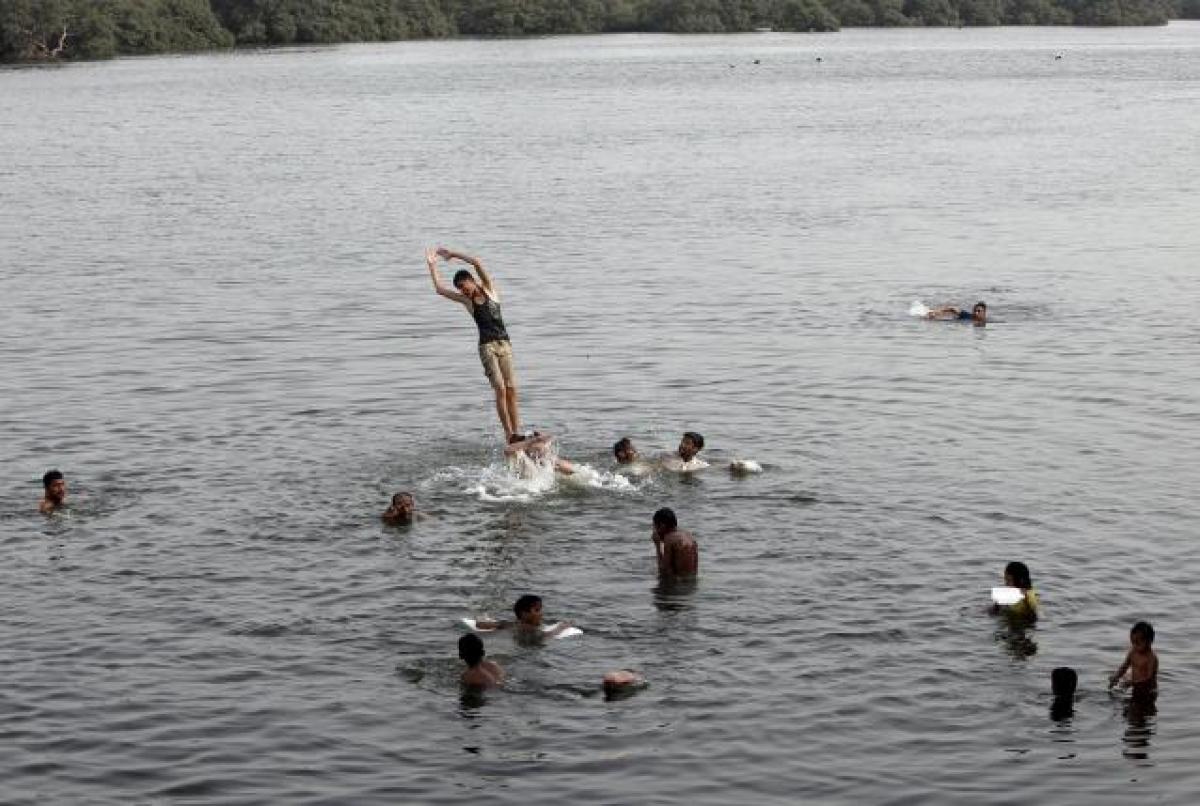Live
- Doubts crop up over recent fire in steel plant
- Average grievance redressal time reduced to 13 days
- Cong leader dares Kishan Reddy to bathe in and drink Musi water
- Bonanza for Warangal as govt rains funds ahead of CM’s visit
- No confidence in Biren Singh govt, NPP supremo says after a day after withdrawing support
- Women of steel: Promoting environment conservation, come what may
- APSSDC signs tripartite MoU to upgrade skills of AP youth
- ‘AAP govt settling Rohingyas in Delhi, giving voter cards’
- Students advised to pursue excellence through learning
- Cold wave hits AP, Telangana: temperatures plunge to single digits
Just In

x
Highlights
An intense heat wave over three days has killed more than 180 people in Pakistan\'s southern Sindh province, officials said on Monday, leading authorities to declare an emergency as the electricity grid crashed and bodies stacked up in the morgues.
An intense heat wave over three days has killed more than 180 people in Pakistan's southern Sindh province, officials said on Monday, leading authorities to declare an emergency as the electricity grid crashed and bodies stacked up in the morgues.

The outages hit large portions of Pakistan's financial heart of Karachi and home to 20 million people, where residents lit bonfires in protest.
Unclaimed bodies were being rapidly buried to create space in the morgues, Anwar Kazmi, a senior official of the charitable Edhi Foundation, told Reuters.
"We are urging people to bury their dead at the earliest in view of the current heat wave and poor power situation," he said. "We have not run out of capacity at the morgue, but buried 30 unclaimed bodies this morning to create more space."
At least 180 people had died of heat-related problems since Friday night, Sabir Memon, Sindh province's additional secretary for health, told Reuters.
Leave for all medical staff had been cancelled and authorities were distributing extra drips and rehydration salts to hospitals, he said. Casualties were still being tallied.
"Hundreds of patients suffering from the heat wave are being treated at government hospitals," Saeed Mangnejo, the provincial health secretary, told Reuters.
Temperature soared to 44 degrees Celsius (111 Fahrenheit) on Saturday and hovered at 43 degrees Celsius (109 Fahrenheit) on Sunday, coinciding with a surge of demand for power as families observed Ramadan, when Muslims fast during daylight hours.
Both the federal government and K-Electric, the private company that supplies Karachi with power, had promised there would be no outages during the time when families gathered to break their fast at sunset.
But power cuts left many families without water, air-conditioning, fans and light.
Officials from K-Electric said the heat wave had triggered unprecedented demand and that many faults were caused by illegal hookups overloading power lines.
Teams trying to fix the faults had been attacked and employees badly beaten, said spokesman Taha Siddiqui.
Corruption and mismanagement mean most of Pakistan usually suffers at least eight hours of daily power cuts. Those in poorer areas are hit even harder.
The cash-strapped government sells power for less than the cost of production, but its late payments to suppliers cause a chronic shortage.
Many wealthy or influential families and factory owners exacerbate the problem by refusing to pay their bills or cutting deals with corrupt power officials.

Next Story
More Stories
ADVERTISEMENT
© 2024 Hyderabad Media House Limited/The Hans India. All rights reserved. Powered by hocalwire.com







